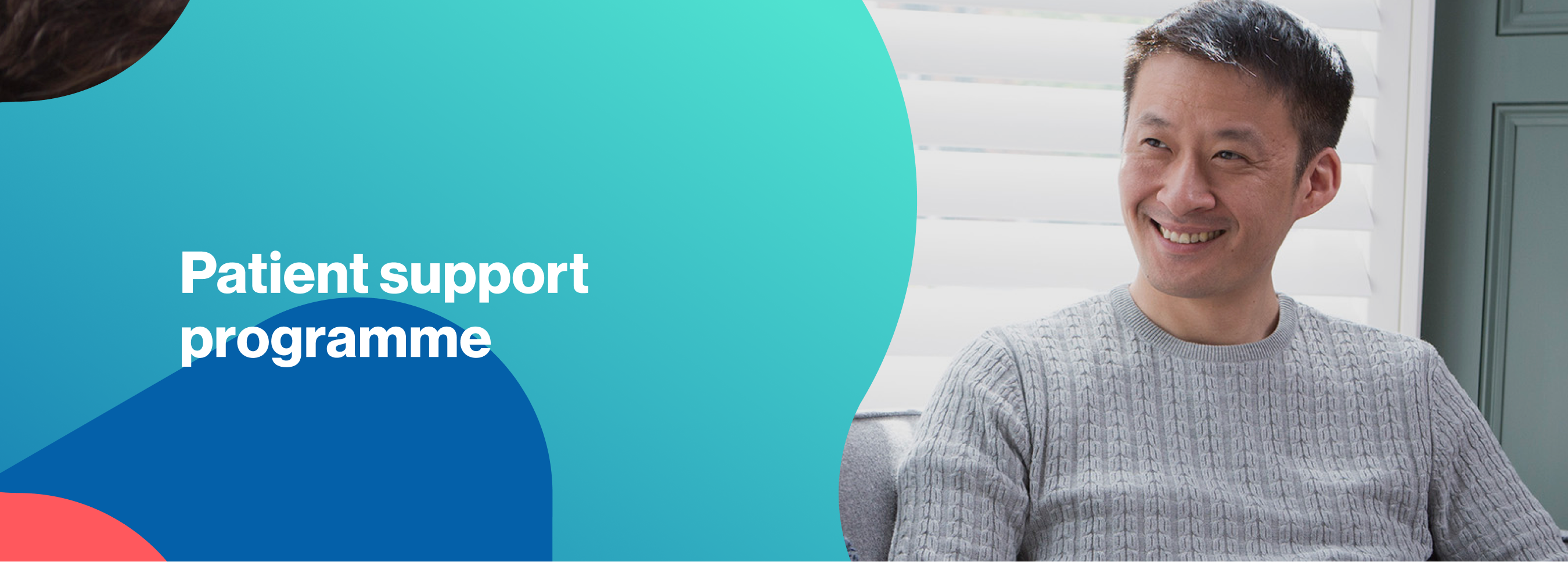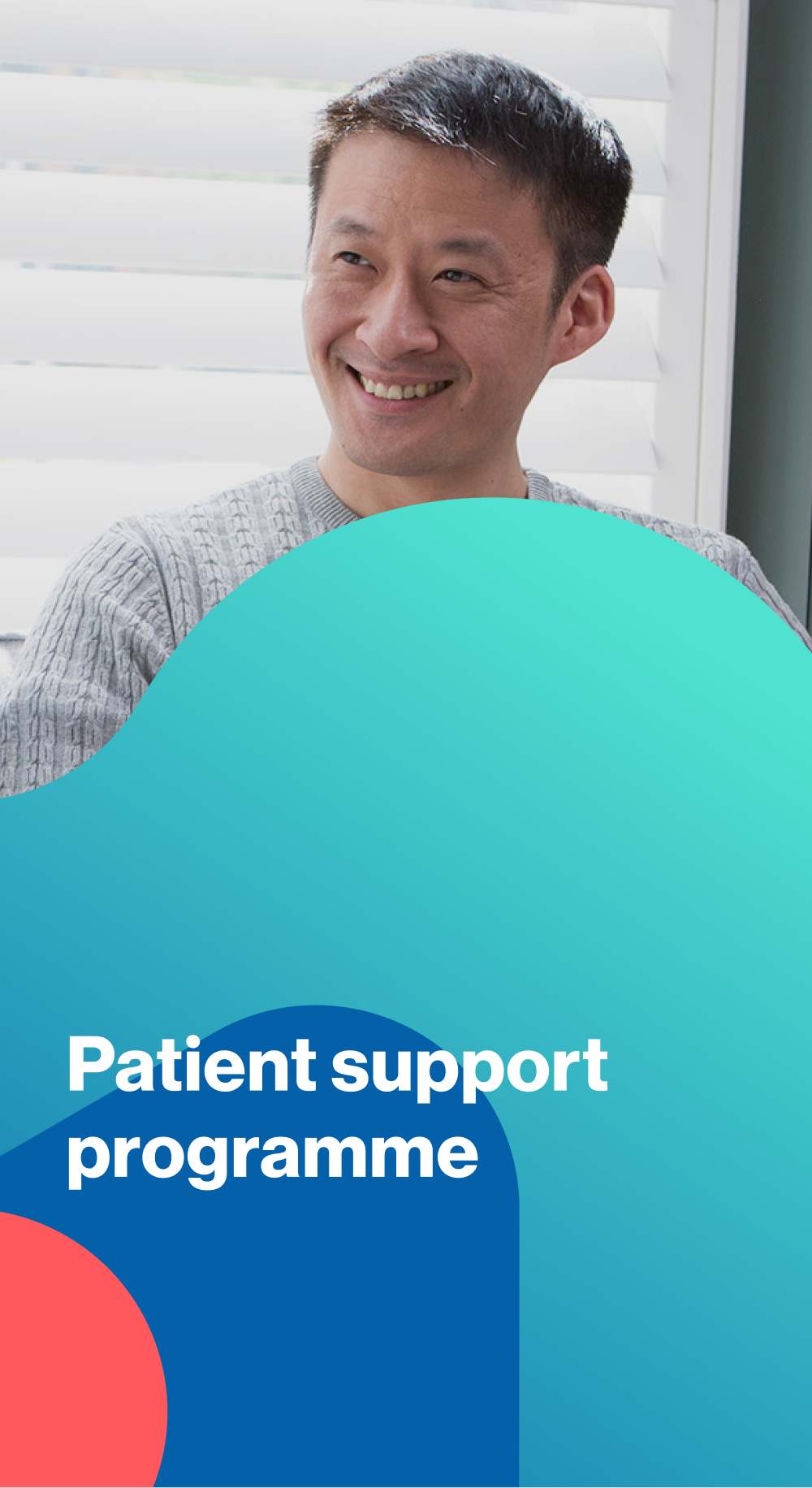Download the support programme guide
This page is intended for UK members of the public. If you are a healthcare professional please click here.
This portal is funded and owned by Novartis Pharmaceuticals UK Ltd and includes content approved by Novartis.
Side-effects reporting information can be found in the footer of this page.
This page is intended for UK patients who have been prescribed iptacopan for paroxysmal nocturnal haemoglobinuria.
The information on this website does not replace the patient information leaflet which comes with your medication. Please always refer to your patient information leaflet for more information. If you have any questions, ask your doctor or care team. Connected – Stronger Together is a patient support programme organised and funded by Novartis.
Even though paroxysmal nocturnal haemoglobinuria (PNH) is a rare disease (affecting approximately 1–9 people per million of the population) and you might not know anyone with the same condition, you’re not alone.1
Starting a new treatment and managing PNH can have challenges. That’s why the Connected – Stronger Together Patient Support Programme, a patient support programme initiated and funded by Novartis, is here for you.
Designed with help from other people living with PNH, the Connected – Stronger Together Patient Support Programme provides downloadable resources and highly personalised support. This aims to address your unique needs as you start and continue treatment with iptacopan. Joining this optional programme allows you to access to different types of support, such as nurse phone calls, emails, or text message reminders to take your medication. You can also access tools to record your symptoms and feelings, as well as read tips on how to manage your well-being and find out more about your condition. The mini self-care guides provide further advice on taking care of your physical and emotional health and managing disruptions to your routine.
When you join the Connected – Stronger Together Patient Support Programme, you can choose the areas that you’d like help with:
A guide to your self-care, including eating and sleeping well, and maintaining good social, physical and emotional health. You can also pick up tips on managing fatigue.
A guide to managing your emotions related to low mood, plus advice on seeking support and asking for help on this. You can find out about activities such as practising mindfulness, and positive self-talk.
A guide on how to continue taking your medication in the event of your routine being disrupted, like when you’re travelling or for other reasons. You can find tips and tools to help deal with these changes, including visualisation techniques.
Here you can download tools that can help you manage your treatment and condition, as well as find answers to questions you may have about iptacopan or PNH. There is also information on support groups and websites.
Reference
PNH Support. What is PNH? Available at: https://pnhuk.org/what-is-pnh/. [Accessed October 2024].
UK | October 2024 | FA-11228111
Reporting side-effects
If you get side-effects with any medication you are taking, talk to your doctor, pharmacist or nurse. This includes any possible side-effects not listed in the information leaflet that comes in the pack. ▼ The medicine referred to in this material is subject to additional monitoring. This will allow quick identification of new safety information. You can help by reporting any side-effects you may get. Please see www.mhra.gov.uk/yellowcard. for instructions on how to report side-effects.
Reporting side-effects
If you get side-effects with any medication you are taking, talk to your doctor, pharmacist or nurse. This includes any possible side-effects not listed in the information leaflet that comes in the pack. You can report side-effects via the Yellow Card Scheme at www.mhra.gov.uk/yellowcard.
By reporting side-effects you can help provide more information on the safety of your medication.




